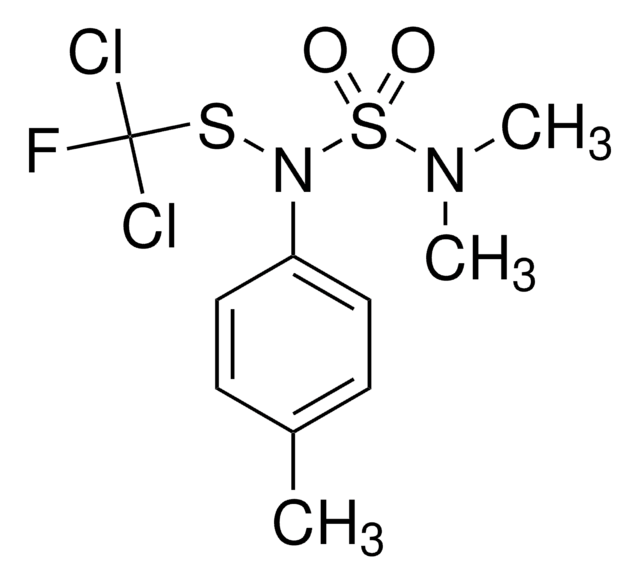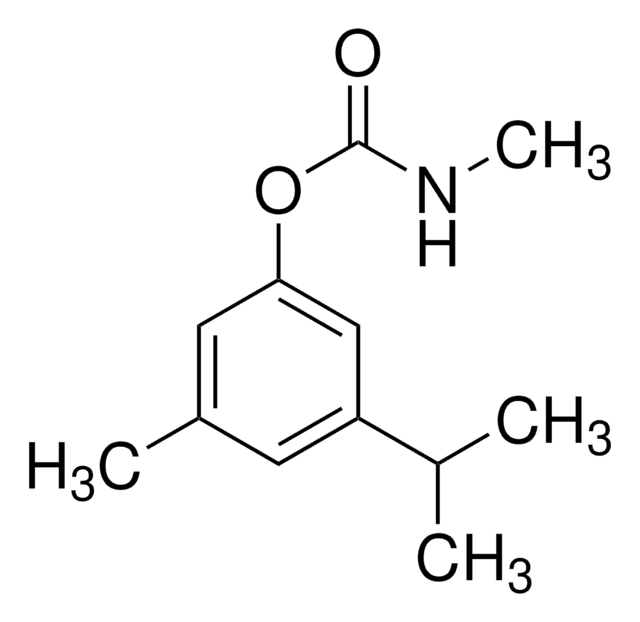About This Item
Recommended Products
grade
analytical standard
product line
PESTANAL®
shelf life
limited shelf life, expiry date on the label
application(s)
agriculture
environmental
format
neat
SMILES string
CC12CC1(C)C(=O)N(C2=O)c3cc(Cl)cc(Cl)c3
InChI
1S/C13H11Cl2NO2/c1-12-6-13(12,2)11(18)16(10(12)17)9-4-7(14)3-8(15)5-9/h3-5H,6H2,1-2H3
InChI key
QXJKBPAVAHBARF-UHFFFAOYSA-N
Looking for similar products? Visit Product Comparison Guide
Related Categories
Legal Information
Storage Class
11 - Combustible Solids
wgk_germany
WGK 2
ppe
Eyeshields, Gloves, type N95 (US)
Certificates of Analysis (COA)
Search for Certificates of Analysis (COA) by entering the products Lot/Batch Number. Lot and Batch Numbers can be found on a product’s label following the words ‘Lot’ or ‘Batch’.
Already Own This Product?
Find documentation for the products that you have recently purchased in the Document Library.
Our team of scientists has experience in all areas of research including Life Science, Material Science, Chemical Synthesis, Chromatography, Analytical and many others.
Contact Technical Service








